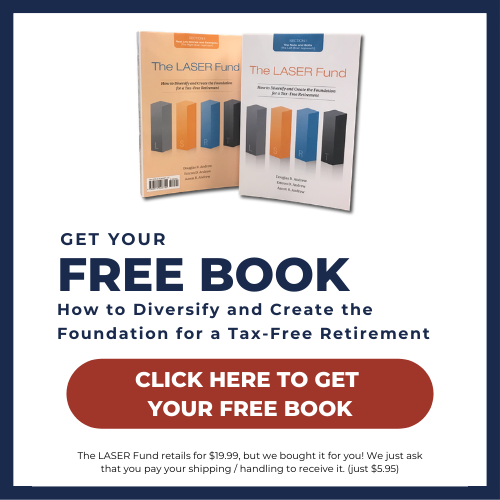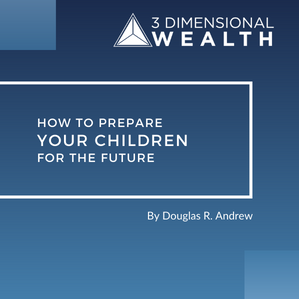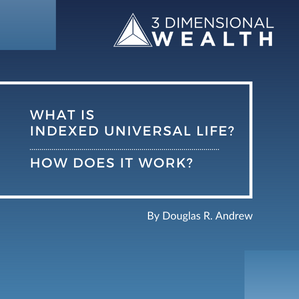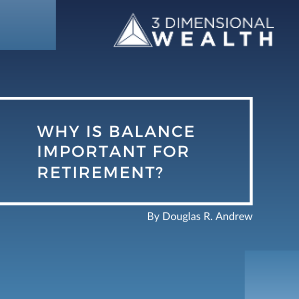Hi, Doug Andrew here.
Recently, I was honored to be published in Inc. Magazine, quoted in a very powerful article, “10 Things You Believe That Are Holding You Back From Success (And What You Can Do Instead).”
The author of the article is John Boitnott, and he did a very good job outlining many “myth-conceptions,” is what I call them, especially in the workplace. He quoted me on three different points, and I wanted to share those with you right now.
MISBELIEF – SKILLS ARE THE MOST IMPORTANT RESOURCE
Misbelief #6 in the article, he titles “Skills are the most important resource to cultivate.”
And he had interviewed me about some of the skills I like to teach my own employees, my own children, and I call it the “Three Rs.”
This is like a three-legged stool. And in any setting, whether you are mentoring youth or you’re a business owners or you’re working with clients or patients, remember these three Rs.
THE FIRST “R” – RESPECT
The first R is Respect. One powerful concept is, no matter who I’m talking to, even if it’s a young teenager—because my wife and I mentor troubled youth—they appreciate that I respect them. I call them “sir,” and they return that respect.
Always respect those that you interface with.
THE SECOND “R” – RAPPORT
The second R is Rapport. A lot of times, there are people that sort of brighten the room when they enter it, versus others who brighten the room when they leave it.
They think they know it all and they sort of put down other people, in a condescending manner. What you want to do is establish rapport with those that you interface with by being sincerely interested in them. When you are in a type of a leadership position, it’s really not about you and building up your credibility or, “I’ve got these degrees or certificates” or whatever.
I learned that it’s really about them. And the more that you develop rapport, by asking and listening, and asking additional questions, they really feel that you interested in them, instead of just being interesting, talking about yourself.
Develop that rapport and that relationship where they begin to feel trust that you are really there, interested in helping to lift them up, give them hope for a brighter future or clarity—so that you’re providing something that other people don’t provide as well as you do.
And they will come back again and again because they have that rapport and relationship.
Many massage therapists, physical therapists, doctors and hairdressers will sometimes comment, “Wow. I hardly get going, and they start sharing things with me that I don’t think they’ve even told their spouse or their religious clergy.”
Why do they do that? It’s because of the rapport, and they know that you’re not going to judge them, you’re going to listen.
THE THIRD “R” – RESILIENCE
The third R is Resilience. Especially when I’m in front of audiences or troubled youth, they want to see if I can bounce back from any curve ball that they may throw at me.
So, many times, they will test me. They’ll see if they can throw me off base. If I’m talking about how to not lose your cool, what are they going to try to do? Try to get me to lose my cool.
And I know that’s what they’re doing. So when they do that and they throw the curve balls at me or they ask a question, I will acknowledge that, “Oh, that’s a very good question…” And I’ll come back with them, and I just don’t lose my cool.
I bounce back with resilience and pretty soon they go, “Okay, this person is really sincere. He walks his talk. He has respect, he has rapport, and he has resilience.”
That’s the three-legged stool, and so he put that in the article.
MISBELIEF – WORKPLACE BENEFITS ARE JUST EXTRAS
As for the other two points …
He [author John Boitnott] talked about the company culture. At our companies we believe in offering benefits to our employees that are different than a lot of companies. Most companies offer benefits that require the employee to die, get sick, or leave to collect that benefit.
What kind of a benefit is that?
We want to have the benefits of having personal development days. We get away sometimes up at our cabin or at a resort, sometimes with their spouses, sometimes with their children. We do service projects, and as we do these various activities that are traditional now, on Valentine’s weekend and at Christmas time or in the summertime—at amusement parks or what have you—we teach how to be responsible and accountable.
We also help them and their spouses have better relationships. Those personal development days have been so powerful that those benefits are far more important and of greater value than just having some extra insurance or death benefit or retirement planning or what have you.
MISBELIEF – WE CAN’T SHAPE HOW OUR EMPLOYEES SEE THEIR ROLE
The third thing he quoted in the article was making sure that everybody has ownership in their own position. That they don’t just sit there and go, “Well, yeah, I just answer phones. I’m the receptionist.”
No. My receptionist is the Director of First Impressions.
Because when people call, or they walk in that door, their first impression is the receptionist. And as I built up the receptionist to know that they are the Director of First Impressions and that they are very important in this company and I cannot do without them, they all begin to take ownership in that position.
So, those are three of the keys that he quoted in the article. I was honored, and I hope these help you in your business, your family—whatever hat you’re wearing at any time—even if that’s a scoutmaster hat.
ABUNDANT LIVING HIGHLIGHTS
– Develop the 3 Rs for Greater Success – Respect. Rapport. Resilience. These three characteristics can make a significant difference in your career, building relationships and helping you overcome setbacks.
– Create Employee Benefits that Inspire Growth – Beyond sick or vacation pay, you can make a lasting impact in your employees’ lives when you provide benefits like ongoing personal development, continuing education, and teambuilding.
– Inspire Employee to Thrive in Their Roles – When you help your employees catch the vision of their greater impact on the business, they go from checking off to-do lists to having a sense of purpose and contribution.




